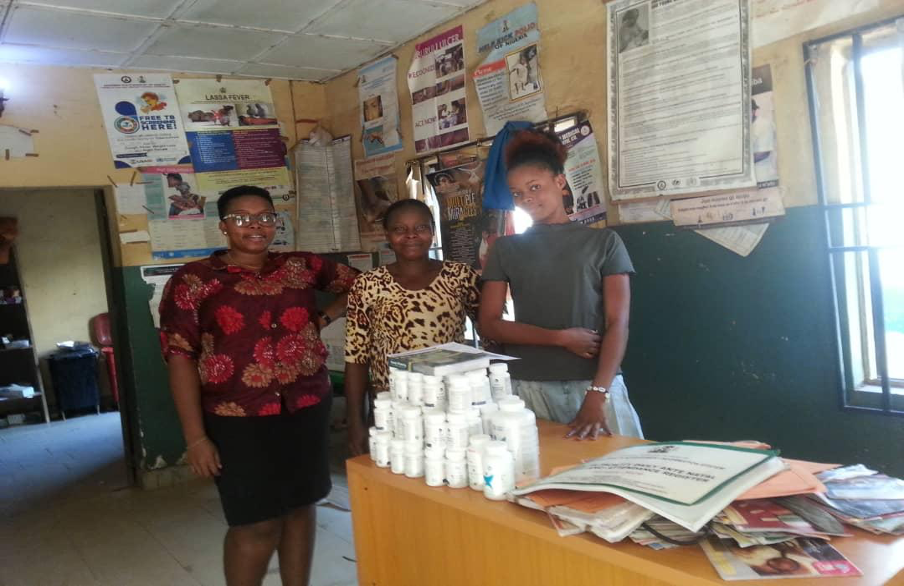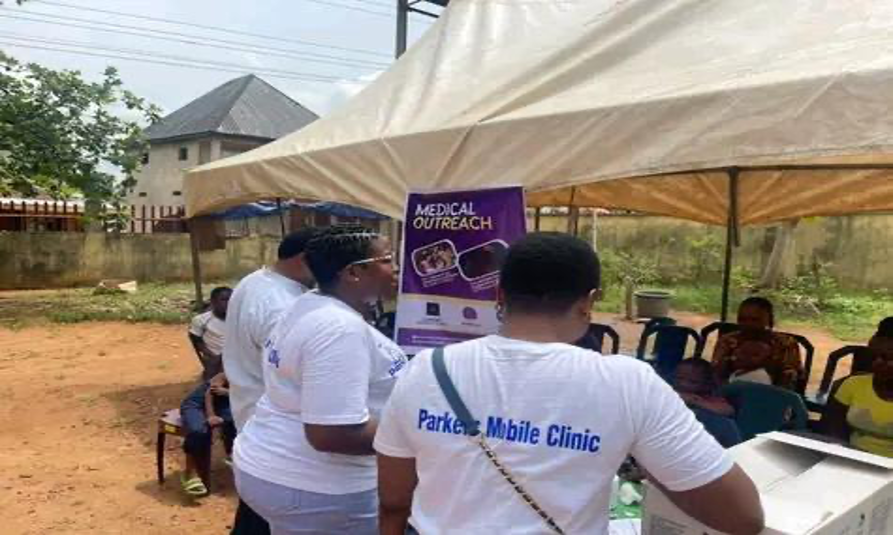
Expanding Access to Integrated Services for Underserved Populations
The Parkers Mobile Clinic Story
June 30, 2022
By: Elvis Okolie
This post was originally published on the Knowledge SUCCESS website. To view the original post, click here.
Parkers Mobile Clinic (PMC360) is a Nigerian non-profit organization. It brings integrated health care services, including reproductive health services, to the doorsteps of people in rural and remote areas. In this interview, Dr. Charles Umeh, the founder of Parkers Mobile Clinic, highlights the organization’s focus—tackling health inequality to improve population, health, and environmental outcomes.
Background
Equitable access to quality health care services is important for tackling health inequality and achieving sustainable development goals. However, this goal remains elusive, especially for populations in rural and remote areas. Particularly, the inadequate number of health facilities, lack of health workers, poverty, having to travel long distances, and poor health awareness are key issues. “Despite the contribution of rural communities to overpopulation that negatively impacts the environment—ecological degradation and depletion of environmental resources as demands for food, water, housing, and infrastructure increases—family planning awareness and uptake remains poor,” says Dr. Charles. The Parkers Mobile Clinic project aimed to improve the health status of underserved populations, including:
- People with disabilities.
- Older people.
- Women.
- Young people.
- Children.
Its successes provide key lessons that may serve as a template for organizations working or interested in similar settings.
Rethinking Service Delivery for Underserved Populations

Credit: PMC360
The PMC360 project implements its strategy via a two-prong approach: an integrated community-based medical outreach and primary health care (PHC) strengthening. “Our work is informed by available evidence. For instance, before outreaches, we conduct community health needs assessments through surveys and focus group discussions (FGDs) with community members. This helps us to prioritize,” Dr. Charles explains.
To build trust, the team works with community health extension workers (CHEWs) who are well known in the community. PMC360 provides a range of integrated services, including:
- Health education.
- Antenatal care services.
- Immunization.
- Nutritional status assessment.
- Sexual and reproductive health services including family planning.
Specifically, to scale up family planning uptake, the project focuses on awareness, male involvement, and an adolescent- and youth-friendly approach. Dr. Charles notes, “While we provide family planning services for married women and other women, we believe that young people are vital to family planning progress, and we tailor services to their needs.”
To sustain the gains of the project, the PMC360 team relies on a health system-strengthening model. “We strengthen available primary health care facilities through the donation of medical supplies and building the capacity of CHEWs,” says Dr. Charles.
Leveraging Collaborative Partnerships
The PMC360 team acknowledged that leveraging collaborative partnerships and encouraging meaningful community participation has been central to the success of the PMC360 project. Community partners identified as important for the PMC360 project include:
- Community leaders.
- Ward development committees.
- Town criers.
- Women and youth leaders.
- CHEWs.
“We conduct planning meetings with identified partners who play a role in the design and implementation of our projects,” Dr. Charles reports. “For instance, identified partners help in selecting suitable dates and venues including mobilizing community members to access services. Such collaborative efforts improve acceptance, ownership, and uptake of services during outreaches.”
Similarly, partnerships with other NGOs have been equally vital to the PMC360 project. Dr. Charles notes, “Our partnership with Vitamin Angels is one of the biggest partnerships we have had so far. They provided us with about 10,000 supplies, including Vitamin A, other supplements, and albendazole for pregnant women. In addition to using some of these supplies for the outreaches, we donate to PHCs as part of our health system-strengthening model to ensure continuity.”
Beyond the Data
Citing available data, the PMC360 team has described the project as successful. Since 2019, 16 community outreaches have been carried out in 14 communities in six different local government areas (LGAs) across Anambra and Imo states in eastern Nigeria. Dr. Charles adds, “We have reached over 12,000 beneficiaries with integrated health services.” Of these, 1,006 pregnant women received antenatal care, and 289 children were immunized. Similarly, beneficiaries also received FP services, including:
- 202 implants.
- 54 intra-uterine contraceptive devices (IUCD) inserted.
- 611 male and female condoms distributed.
- 319 women reached with Sayana press injections.
While numerical data shows the magnitude of the impact of the PMC360 project, it is important to note beneficiary experiences. “Through PMC360, I was able to space my two pregnancies and have time to participate in my continuing education class and farming, which my family depends on,” admitted Mrs. Chinyere. The project team believes that this story exemplifies how the project is improving population health outcomes and allowing for sustainable use of environmental resources.
As part of the health system strengthening approach, the PMC360 project has donated supplies to six PHCs and trained 25 CHEWs on FP service delivery.
Lessons and Opportunities
The PMC360 project has faced its challenges despite positive results. Dr. Charles notes, “Sustainably getting resources for the outreaches and strengthening of health facilities remains a major challenge. We currently use one ambulance to serve many communities; if we can get an additional ambulance and more commodities, we will reach more communities with life-saving services.” The project team believes that prioritizing investments in health and reaching the most vulnerable is key.
Nevertheless, the lessons from the project can form a blueprint for interventions with an integrated population, health, and environment focus. Particularly, being able to adapt the project with feedback from community members and partners remains a highlight. “We initially started with a mobile clinic ambulance approach, then moved to community-based outreaches, and incorporated health system strengthening to ensure that community members continued to access basic services beyond the outreaches,” says Dr. Charles. Moving forward, the project team is strengthening resource mobilization strategies to expand the project to other areas of Nigeria.
Want to learn more? Check out the FP insight FP Service Delivery collection.
Editor’s note: While a growing population can contribute to resource strain, it is one of many factors that can cause stress on an ecosystem and the larger environment. Existing consumption patterns in high-income countries, global over-reliance on fossil fuels, and governmental economic priorities are large contributors to environmental degradation.




